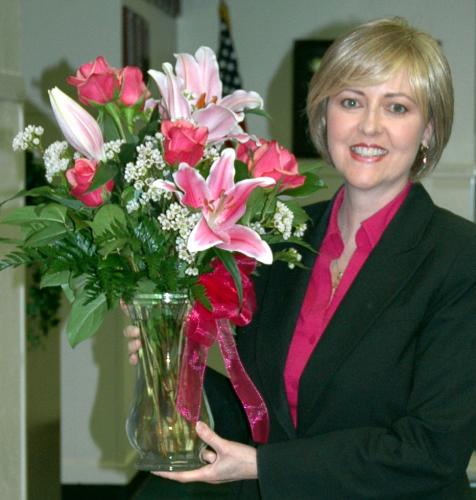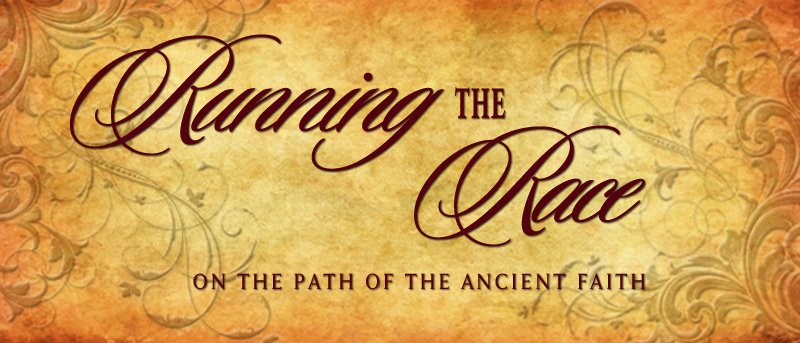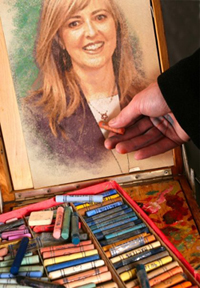Train tickets and egg whites
 Saturday, March 28, 2009 at 2:30PM
Saturday, March 28, 2009 at 2:30PM  I am thrilled to report that I finished my radiation treatments this week (Monday, March 23, 2009)! Yep, a total of 38 treatments (7-1/2 weeks’ worth) are now behind me! I am incredibly relieved to have the surgeries, chemo, and radiation parts of my treatment behind me.
I am thrilled to report that I finished my radiation treatments this week (Monday, March 23, 2009)! Yep, a total of 38 treatments (7-1/2 weeks’ worth) are now behind me! I am incredibly relieved to have the surgeries, chemo, and radiation parts of my treatment behind me.
On my last day of treatment, I brought a Snickers cake to my appointment, along with a card for Dr. K. and his staff. They are a great bunch of people whose expertise, compassion, and humor make a difference in many lives. I wanted them to know how thankful I am for that.
However, I don’t feel that my journey with cancer is over by any means. I still have the hormonal therapy to start and will be on it for several years, if all goes according to plan. The hormonal treatment has side effects that range from none to severe menopausal symptoms, so there’s more to look forward to!
I just learned recently that new evidence (presented at the cancer conference in San Antonio last December), indicates that up to 35% of women taking this particular medication (“Tamoxifen”), are not able to metabolize it. What this means is that it fails to work and they have a recurrence of their breast cancer.
However, there is now a gene test which will indicate which women are “poor metabolizers” of Tamoxifen. I have an appointment with my oncologist (Dr. E.), at Swedish in a couple of weeks and I plan to request (demand!) the test be done before I take any medication. Let’s see what Dr. E. says about it. If I turn out to be one of the poor metabolizers, another medication would be considered. And the beat goes on . . . .
Of course, I will always live with the knowledge that breast cancer—or any other cancer, for that matter—could occur. I am now at higher risk for cancer in my other breast, as well as other types of cancers. Which means that I will be going for a colonoscopy (my first) in the near future. Heck, after having my breast poked, prodded, injected, sliced, squashed, and burned . . . what’s a little colonoscopy?! I won't be a girly-mahn! :~)
I was especially touched by my family this week. On Tuesday, a beautiful bouquet of flowers was delivered to my office with a note from my husband saying, “Congratulations! You made it! I am proud of you.” The flowers smell wonderful, too.
When I arrived home later that day, I found that my daughter had decorated with crepe paper streamers and placed a lovely bouquet of flowers on the dining table. Along with that, she had written a card (which she asked me not to read in front of her). The net result was an overload of warm fuzzies.
I still struggle with nagging fears that I shouldn’t be celebrating too much (“What if it comes back?”). So I have to do a self-talk again and come full-circle, saying, “You know what? Even if it comes back, I’m going to LIVE my life while I have it!” I’d hate to think that I spent whatever time I have left on this earth full of dread and worry—it is SO not worth it!
Which brings me to something I’d like to share with you from author Corrie ten Boom. Corrie was a Christian Holocaust survivor in Holland who helped many Jews escape the Nazis during World War II. I first learned about Corrie’s life many years ago as a teenager. Her most famous book, The Hiding Place, was made into a movie starring Julie Harris in the 1970s.
One Christmas several years ago, Gary gave me a compilation of Corrie ten Boom’s writings. I devoured the book. I love biographies and autobiographies, so you can imagine it really hit the mark with me. She had an absolutely riveting story to tell and spent her surviving years traveling the world sharing it.
One story in particular had a significant impact on me. It illustrates a principle that I have found to be true and I find it especially comforting and meaningful at this point in my life.
In her book, The Hiding Place, she tells a story from her childhood. While this tale is about strength in the face of death, I think it is also applicable on a broader scale.
Corrie had just witnessed death first-hand; a small baby in the neighborhood had died. It left her young mind feeling deeply upset, confused, and afraid. When her father came to tuck her in that night, all those feelings came tumbling out:
. . . that night as he stepped through the door I burst into tears.”I need you!” I sobbed. “You can’t die! You can’t!”
Father sat down on the edge of the narrow bed. “Corrie,” he began gently, “when you and I go to Amsterdam--when do I give you your ticket?”
I sniffed a few times, considering this. “Why, just before we get on the train.”
“Exactly. And our wise Father in heaven knows when we’re going to need things, too. Don’t run ahead of him, Corrie. When the time comes that some of us will have to die, you will look into your heart and find the strength you need--just in time.”
I have often pondered this story and the truth of it in my own life. At each step along the way of this journey, God has met me with the “train ticket” . . . the grace, strength, and courage to move forward. And when I contemplate worries or fears of the future, I realize that He will do the same.
Believe me, there were times when I struggled and cried out to Him (especially in the beginning). I simply could not imagine ever being happy again. I never asked “Why me?” But I did ask for many other things. I believe that He gave me what I asked for and more.
And I realized this week, that--instead of shrugging off the compliments people have given me on how well I’ve handled my treatment—I should be pointing up and giving the compliments to Him: to God be the glory.
If there’s one thing I believe even more wholeheartedly than I did before all of this experience, it’s this: God is a good God who loves mankind. Even when things don’t go “our way,” we cannot see beyond the veil to the truer purpose of our lives. Even if a diagnosis doesn’t end with hope of physical recovery, we have the ultimate hope--that of communing with our Creator in eternity.
I realize that, to some, the above statement may sound like a far-away, empty, meaningless story that is told to comfort someone on the verge of death. Yet, for those of us who cling to God, it is our fervent hope and the meaning of our faith. Without it, no life has purpose.
The Orthodox refer to this as the “remembrance of death.” The remembrance of death brings with it “great awakening power.” Ironically, remembrance of death is what gives meaning to our lives.
Father Antony Hughes, in a sermon at Cambridge, Massachusetts, said it best:
“From a Medieval book called, “The Craft of the Art of Dying,” we read, “Learn to die and you shall live, for there shall be none who learn to truly live who have not learned to die.” The Sufis say, “Die before you die and you shall never die.” Jesus puts it this way, “Deny yourselves, take up your cross and follow me.”
We are not speaking of physical death, which comes in its own time, but a kind of dying before physical death. We are talking about the death of the ego, the “old man” as St. Paul puts it, the thing we have created from the debris of life and called “myself.”
It is this that grasps hold of fantasies and refuses to admit the truth. It is this in us that grasps for power above all and does not recognize that it is weak and perishing. If we allow our fragile ego to die, then along with it goes the fear of death. Along with the death of ego comes the “peace that passes understanding.”
The reason is simple and Jesus teaches it plainly, “The truth shall set you free.” The remembrance of death makes life real. Denying death keeps us in delusion. Death loses its power when we “meditate on the brevity of life,” as St. John of Damascus tells us and we learn the truth that “it is in the dying that we discover life.”
Through this practice, the truth that every moment in life is precious begins to come alive and joy is not far behind. It is through the Cross that we are made alive.
Let me end with a quote from the great Scottish writer Muriel Spark: "If I had my life to live over again, I should form the habit of nightly composing myself to thoughts of death. I would practice, as it were, the remembrance of death. There is no other practice which so intensifies life. Death, when it approaches, ought not to take one by surprise. It should be part of the full expectancy of life. Without an ever-present sense of death, life is insipid. You might as well live on the whites of eggs."
Here’s to living on egg yolks and more!




Reader Comments